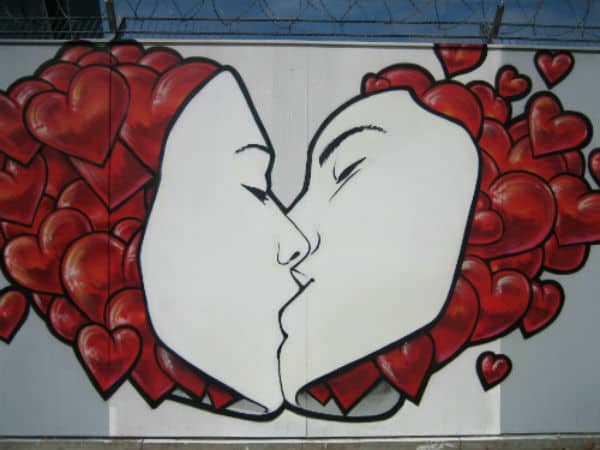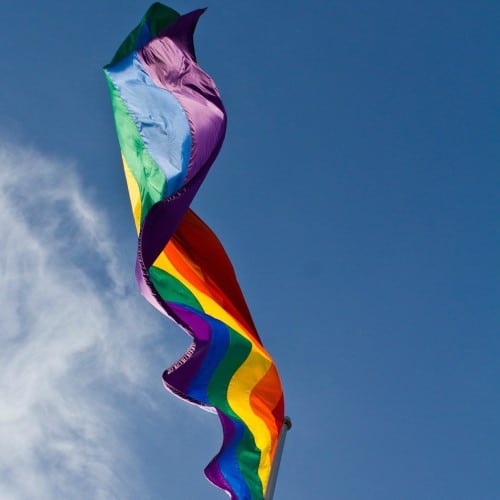In February of this year, I participated in a Middle East, South Asian and African Studies graduate student conference at a New York-based university. It was, expectedly, a stimulating event, with master’s and PhD students from Princeton, to Harvard, UC Berkeley, my own Oxford and other institutions making short or long journeys to the city to share work spanning a variety of disciplines, time periods and geographical focuses.
For better or worse, it wasn’t my own panel – on the relationship between cultural production and political change – that I found most thought provoking, but rather the one that dealt with gender and sexuality. More specifically, I was struck by one particular presentation given by a BA/MA student from a US-based university, on non-heteronormative sexuality in the postcolonial world, specifically Lebanon – my home country and the focus of my own anthropological research.
The student, a white American female, had never been to Lebanon. But, she decided to focus her paper on a critique of a book of personal essays published by a Lebanese collective and rights group dedicated to lesbian, bisexual, queer and questioning women and transgender persons.
To be fair, BA/MA level students in the US working on the Middle East or other geographically distant regions can’t be expected to have necessarily visited or carried out research in the countries that interest them. However, given the scathing nature of the student’s critique and the confidence with which she delivered it, and the fact that she would proceed to almost categorically dismiss Lebanese who identify with Western categories of sexual orientation, it is worth pointing out her unfamiliarity with the context in which her argument is grounded.
The anthology under discussion invited women and transgender persons from Lebanon to narrate their non-conforming experiences with sexuality, and reflect on their desires, identities and socio-cultural contexts. Framing the book as a celebration of ‘outness’, the student couched her argument in the seminal words of Joseph Massad who, in Desiring Arabs, levelled a critique against what he calls the ‘Gay International’, pointing to the violence that LGBTQ activists in the Middle East and their Western allies can inadvertently engage in by unquestioningly linking sexual practice to identity, naturalizing and de-historicizing Western categories of sexual orientation, and uncritically framing the act of coming out as an inherent good, as a condition of non-heteronormative agency. In so doing, many such activists pressure non-Westerners with non-conforming lifestyles to not only publicly speak and perform their desires, but to see them as constitutive of an identity they otherwise might have not felt an affinity with.
Activism, by its very nature, promotes certain practices and ways of being and thinking while denouncing others. It is a positionality in opposition to something. And, while it is important to confront oppressive structures and norms, Massad and similar scholars have shown that it is equally paramount that we not take our own articulations and agendas for granted as neutral and ahistorical – that we think carefully about who we might be harming with our demands as well; what ways of being we might be threatening with erasure; what forms of conformity we might be unintentionally condoning in our quest to enable nonconformity.
While I agree with this aspect of Massad’s critique, I have always felt that he took things one step too far, wading dangerously close to making an argument about authentic ways of being. I was reminded of my discomfort with this aspect of his argument as the student, drawing inspiration from him, almost mockingly disparaged Lebanese and, by extension, post-colonials, who identify as LGBTQ – activists or not. For this student and, for Massad, this identification with categories of sexual orientation that have their roots in the West, and whose introduction into the postcolonial world contributed to the erasure of alternative forms of non-heteronormative being, seems to constitute a kind of complicity with Empire.
While it is important to trace the genealogy of our desires, beliefs and values and to question their naturalness in order to keep from imposing them on or allowing them to harm others, to frame some forms of non-conforming sexual practice as more authentically Arab, or Iranian or what have you than others, seems to me quite problematic as well. All identities are constructed, all desires and values are cultivated, but they also become what William Connolly calls bio-cultural – deeply sedimented, incapable of simply being discarded or shed. It is one thing to ask LGBTQ Lebanese to think critically about the genealogy of their identities and desires and the forms of power that have shaped them and with which they continue to be entangled when building their activist platforms, it is another thing entirely to ask them to simply step out of their being, de-cultivate their wants and passions, and reconfigure their lifeworld in favor of a more authentic one presumed to have existed one upon a pre-colonial time.

Photo by khfalk (Pixabay, CC0 1.0)
Also, more importantly, one must ask, is this the critique that non-heteronormative Lebanese and postcolonials more generally are most in need of? Power does not merely emanate from the West. It is fluid, networked and multiple, and before making an argument in relation to non-conforming sexual practices in a context like Lebanon, one must ask what hegemonic powers their practitioners find themselves confronting in the present moment? What oppressive forces most threaten them?
In the Lebanese context, homosexuality is not criminalized. Same sex practice is. The postcolonial Lebanese state has long since internalized Western categories of sexual orientation and notions of deviance as well. Courtesy of the French, Article 534 of the Lebanese penal code prohibits “sexual intercourse contrary to the order of nature,” and is used mostly to penalize same-sex practitioners.
The Lebanese state raids clubs and bars in search of homosexuals to ‘out’. It drags them from the relatively safe space of an LGBT friendly venue and displays their ‘deviance’ before a scrutinizing public eye. It is this state that non-conforming Lebanese must contend with today, a state that isn’t willing to let same-sex practices unfold even in private spaces – like might have been the case in the pre-colonial periods described by Massad, or in Afsaneh Najmabadi’s Qajar Iran – but is determined to weed out their practitioners; a state that has made reluctant peace with public displays of camp, with queer ‘identities’, but not with sodomy.
Aware of this reality, I wasn’t sure what to do with the student’s argument. Sitting in a closed conference room in New York with this well-intentioned person who had never been to Lebanon, who looked at me perplexedly when I said that, while I agreed with her critique of LGBTQ activism and the dangers of the ‘Gay International’ speaking on behalf of and shaping same-sex practitioners in the postcolonial world in his/her image, I just couldn’t see how it was relevant to the Lebanon of this moment, to a Lebanon where the state, not activists, was trying to out people, and where activists were actually more focused on safeguarding same-sex practitioners from the state than in proselytizing a particular way of being LGBTQ.
What I had been hearing and seeing in the Lebanon of the last few years at least, were attempts, for example, to challenge Article 534 by questioning the very idea of nature, and not attempts at naturalizing categories like gay or lesbian. I had been seeing attempts at highlighting the constructedness, for example, of gender, rather than legitimising particular approaches to the category.
Confronting that student, well-intentioned as she was, with her own ignorance; communicating the context she purported to critique and watching it enter her awareness for the first time, I couldn’t help feeling like what I was witnessing was, to riff off Gayatri Spivak, an example of the metropole trying to save the periphery from itself, to teach some of its inhabitants the inauthenticity of their desires, values, beliefs and ways of being, and guide them back down the genealogical path to some better version of themselves.
I think this has become all too common in the academic study of the postcolonial world from the metropole, especially with scholarly work that deals with so-called secular-liberal subjects. As opposed to being generously listened to when they speak what it is they find harmful, what it is they find oppressive, what it is that is hindering their ability to be anything at all, to desire anything at all, at a given historical moment, they are handed arguments from the Ivory Tower that, while interesting and valuable in the abstract, don’t necessarily resonate with their current lives and struggles.
Many seminal and provocative scholars of the contemporary Middle East and wider postcolonial world, a significant number of them anthropologists, have shifted the discourse on the non-Western world by taking their subjects seriously on their own terms, and approaching unfamiliar ways of being with humility, as Saba Mahmood calls on her peers to do when engaging Muslim subjects, for example. But what of the familiar subject in the unfamiliar space, he or she who bares more clearly than others the epistemological scars of colonialism? They are shouting in the dark, their pain too often dismissed because of the colonial underbelly of their subjectivities, the dissection, isolation and classification of which has preoccupied many academics in the metropole at the expense of examining the power dynamics that are oppressing these subjects in the present.
Featured image (cropped) by Unsplash (Pixabay, CC 1.0)





